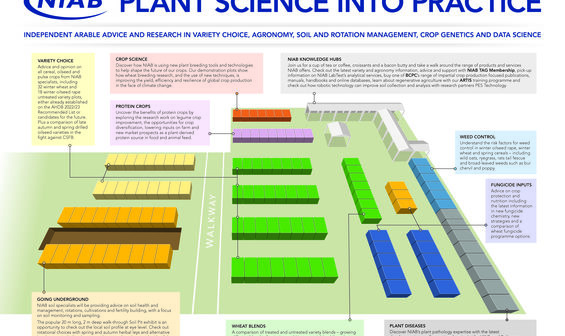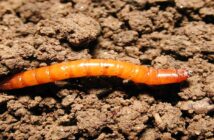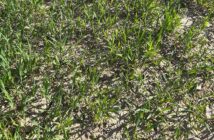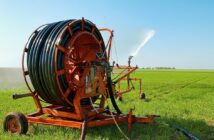Varietal, cultural and chemical wheat disease management forms the basis of the NIAB stand at the 2022 Cereals Event in Cambridgeshire on 8th and 9th June, with a mix of plots and advice to aid growers in decision-making on disease control.
NIAB is back at Cereals 2022 with 125 different crop and variety plots along with the ever popular Soil Hole exhibit – a one-stop shop for the latest technical advice and research in variety choice, independent agronomy, soil and rotation management and crop genetics.
Visitors regularly return to NIAB’s stand for the unparalleled variety expertise and demonstration plots, including 32 winter wheat and 16 winter oilseed rape varieties, either already established on the AHDB 2022/23 Recommended List or candidates. And this year the stand features plots showcasing fungicide inputs versus yield in winter wheat, a comparison of new cereal fungicides and, for the first time, treated and untreated wheat variety blends.
NIAB’s director of Agronomy Stuart Knight says: “Our untreated winter wheat variety demo plots are always a top attraction at Cereals, giving growers a head start on their variety selection for next season, with differences in disease susceptibility between the varieties clearly evident. The demo is complemented by the new variety blends feature, enabling visitors to assess whether bringing together the resistance profiles of several wheat varieties could potentially reduce disease, improve resilience and increase yield.”
The focus on disease continues in the plant pathology plots with the latest developments on yellow rust with the UK Cereal Pathogen Virulence Survey team and a look at varietal resistance to septoria, alongside advice and support in disease diagnostics and imaging.
NIAB is also showcasing a wide range of protein crops, including lupins, peas, beans, lentils, chickpeas and soya. “Our wheat pre-breeding programme is supplying the seed industry with novel traits to improve resilience and productivity, and NIAB’s plans for a parallel initiative in pulses will help unlock the long-neglected climate-proofing and healthy-eating potential of these key protein crops. Our demo plots at Cereals will explore the research work on legume crop improvement, alongside the opportunities for crop diversification, lowering inputs on farm and new market prospects as a plant-derived protein source in food and animal feed,” says Mr Knight.
The Soil Hole
The 20 metre long NIAB Soil Hole is back again with this year’s surrounding plots showing alternative break crops, spring legumes and herbal ley mixtures.
“This year we will be demonstrating soil monitoring in the Soil Hole – what, how, when and why,” explains NIAB’s Head of Farming Systems Dr Elizabeth Stockdale. “This includes a demonstration of an automated soil sampling robot from the Small Robot Company, who is working with a consortium led by PES Technologies including NIAB, alongside a working soil sequencing display.
“We have a superb diversity of crops lining the pit, including spring linseed, lupins, clover, beans and spring barley, have compacted some tramlines and will cut down the wheat plots a couple of weeks before the show to give us a stubble field, so we can demonstrate the recommended sampling point for general rotational soil health sampling,” finishes Dr Stockdale.




